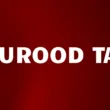M&Ms, the beloved candy, is a favorite treat for many, but for those following halal dietary guidelines, there might be some concerns.
In this article, we will delve into the ingredients of M&Ms and determine whether this popular candy is halal or not.
We’ll explore the evidence behind the ingredients and discuss how to identify halal foods. So, if you’re eager to understand the halal implications of M&Ms, let’s delve into the delicious world of these little chocolate treats!
Is M&M Halal or Haram?
M&Ms are Haram.
In light of the evidence presented, we can conclude that M&M may not be an ideal choice for those seeking strictly halal options due to the presence of maltodextrin and non-halal coloring.
For Muslims, halal signifies permissible or lawful, and it encompasses not just the absence of certain forbidden elements but also the entire process involved in preparing the food.
The core composition of M&Ms includes milk chocolate encased in a hard candy shell, creating a delightful treat enjoyed by many. The main ingredients include milk cocoa, corn syrup, chocolate, maltodextrin, and artificial coloring.
Evidence
- Surah Al-Baqarah (2:168-169) reminds us of the importance of consuming what is lawful and good, avoiding following the footsteps of Satan. The verse emphasizes the significance of eating wholesome and permissible food.
Let’s dissect the ingredients one by one to ascertain which aspects align with halal principles and which raise concerns.
The good news is that sugar, milk, cocoa butter, chocolate, and corn syrup are all considered halal. These components, derived from permissible sources, make up a substantial part of M&Ms, adding to their luscious taste.
However, the waters become murkier when we encounter maltodextrin and coloring. Maltodextrin, a commonly used white powder extracted from starch, serves as a thickener or filler in various food products. Unfortunately, it falls short of the halal criteria, raising a red flag for Muslim consumers.
Likewise, the coloring used in M&Ms raises legitimate concerns. Many food colorings are derived from animal or insect sources, posing a challenge to those seeking halal compliance in their diet.
- Surah Al-Ma’idah (5:3) outlines the prohibited foods, such as dead animals, blood, the flesh of swine, and food that has been dedicated to other than Allah. These verses establish the foundational principles of halal and haram in Islam.
Bottom Line
For individuals following halal practices, it is advisable to be mindful of the ingredients listed on the packaging when selecting candy or any food item. While M&Ms have several halal-friendly components, the inclusion of maltodextrin and non-halal coloring renders them unsuitable for halal-conscious consumers.
To ensure you’re making halal choices, familiarise yourself with the halal certification symbols and consult reputable Islamic scholars when in doubt.
Though M&Ms hold a special place in the hearts of many, those adhering to halal dietary guidelines may need to explore alternative candy options that meet their specific requirements. By being informed, you can indulge in delicious treats while staying true to your halal values and beliefs.
Got a question? Feel free to ask mufti and get quick answers.
MORE:
Discover more from The Islamic Information
Subscribe to get the latest posts sent to your email.





![Are M&Ms Halal? Can Muslims Eat It? ([year]) 5 MMs](https://theislamicinformation.com/wp-content/uploads/2022/08/MMs-800x500.jpg)
![Are M&Ms Halal? Can Muslims Eat It? ([year]) 6 Accepted Payment Methods](https://theislamicinformation.com/wp-content/uploads/2024/07/accepted-cards.png)


![Is Dishoom Halal? Can Muslims Eat It? [year] 19 Dishoom](https://theislamicinformation.com/wp-content/uploads/2022/09/Dishoom-260x195.jpg)


![Is Cheetos Halal? Can Muslims Eat It? [year] 23 cheetos](https://theislamicinformation.com/wp-content/uploads/2023/02/cheetos-260x195.jpeg)